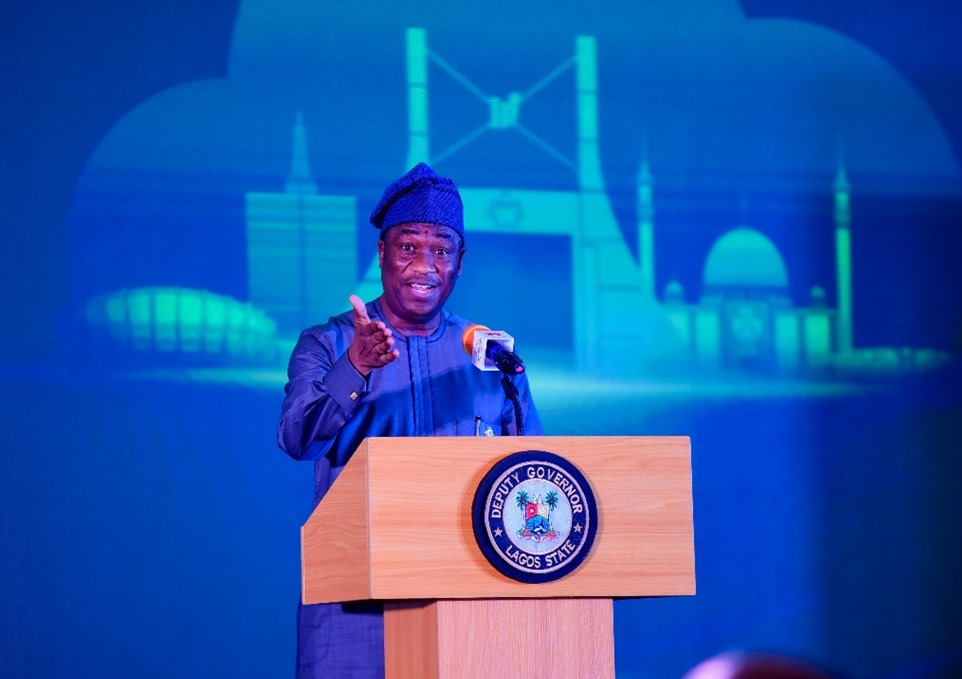The Deputy Governor of Lagos State, Dr. Obafemi Hamzat, has raised alarm over excessive estimated billing by electricity distribution companies, revealing that Eko Electricity Distribution Company (Eko Disco) billed his residence at the State House N29 million for electricity in April.
Speaking during a Roundtable Meeting and the signing of a Memorandum of Understanding (MoU) between the Lagos State Government and the Rural Electrification Agency (REA), Hamzat shared his personal experience to highlight the urgency of expanding access to affordable and reliable electricity across Lagos.
“Last month, in my house, the State House, the bill was N2.7 million. This month, the Eko Disco sent us a bill of N29 million,” he said.
“It’s crazy. So, we have actually procured a meter. I bought a meter to say, look, don’t give me a crazy bill. I bought the meter, but to convert it, what happened?” he added.
Hamzat further recounted another troubling case in Surulere, where a resident received a bill that surpassed their annual rent.
“In some areas in Lagos — I’m sure a lot of you know Lagos — there’s a place called Oke Aguda in Surulere.
The people came to me, and I was asking them to calm down. The rent in a year is about N2 million, but EKEDC gave him a fee of N2.8 million in electricity.Those are the challenges that we have. So, our people are suffering because of these meter bills,” he said.
The deputy governor emphasized the significance of the MoU with REA, which aims to extend electricity projects to rural and underserved communities in Lagos, including Epe, Badagry, Ojo, and Amuwo-Odofin.
“What we are doing today looks very small. When the commissioner said we’ll be signing these, we’ll come tomorrow, I said why are you keeping us for three days? But I understand what he’s trying to do. It’s important. This is the need of the people,” Hamzat remarked.
The rural electrification initiative will be jointly funded by the Federal Government, Lagos State Government, and private sector partners in a 60:30:10 ratio, respectively.
Speaking at the event, REA Managing Director, Abba Aliyu, revealed that over N200 billion had been spent nationwide on importing photovoltaic (PV) panels. He said the agency is working to reverse this trend by domesticating the production of renewable energy equipment.
“While there is a need for that importation, one of the key things our agency is striving for is domesticating the manufacturing of this renewable equipment.
Your Excellency, Lagos, being the centre of excellence, is going to lead a total war in that domestication,” Aliyu said.
He disclosed that a 100-megawatt PV panel manufacturing plant has already begun operations in Lagos, building on the progress of an earlier 10-megawatt facility in Ikotun, which has since been expanded.
Aliyu also revealed plans to enter a joint development agreement with Green World, a lithium battery assembly company, representing a $150 million investment in the state.
Looking ahead, REA is exploring innovative solutions tailored to Lagos’s unique urban challenges.
“We want to seek the approval of Lagos State to pioneer the first floating solar power plant in Lagos. With the unique challenge of limited land availability in Lagos State, we want to deploy an 80-megawatt plant at the University of Lagos.
But we want to seek the approval of the state to give us that approval to make it a floating solar panel, which will be the first of its kind in Nigeria. And we hope that that approval will be granted to us,” he said.
He also confirmed that Lagos is the first and only state currently qualified to benefit from a rooftop solar program for public institutions.
REA has already identified several target communities across the state for intervention as it works to expand energy access and reduce dependence on traditional electricity sources.



